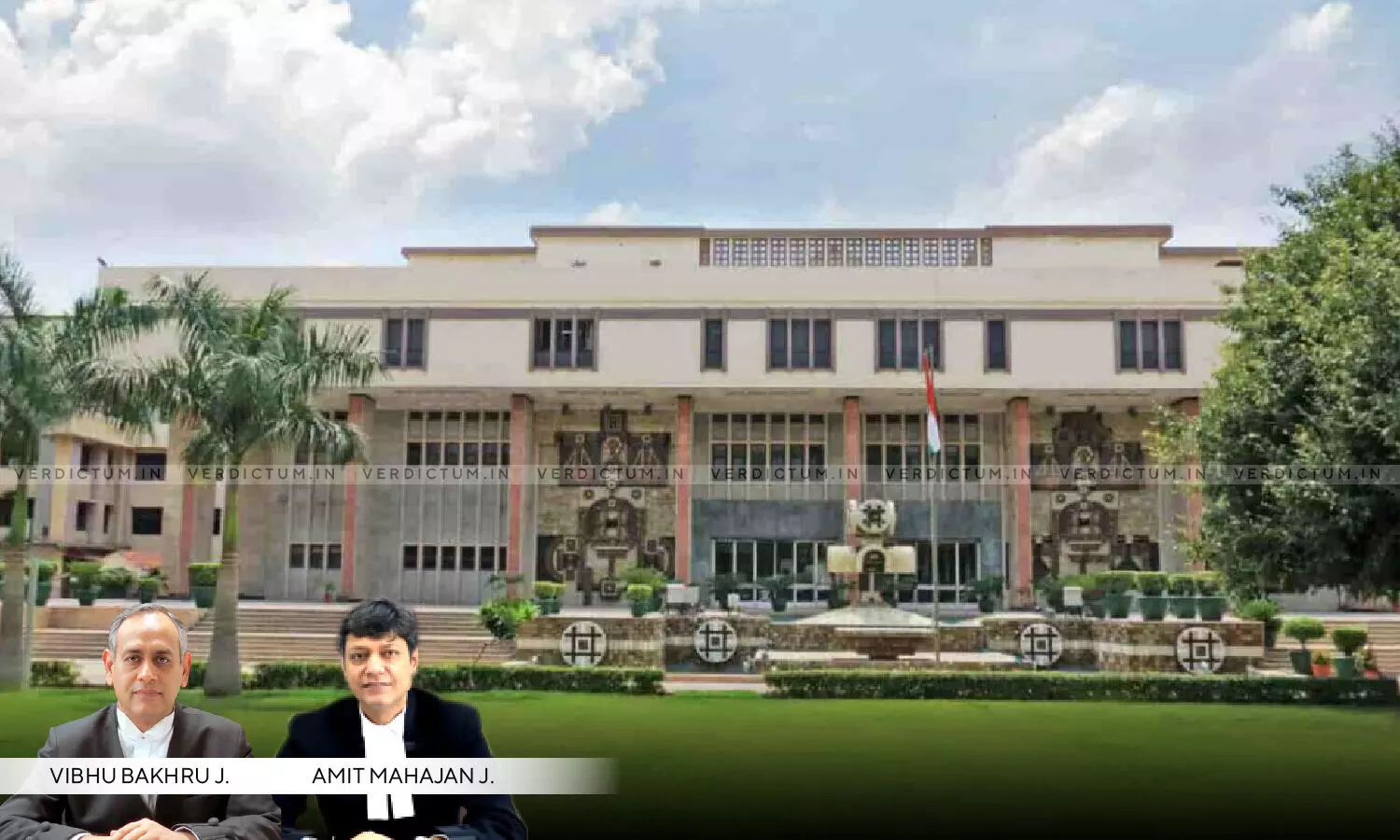
Section 6(2)(B) Of CGST Act Does Not Apply To Cases Where No Actual Investigation Was Conducted: Delhi High Court
 |
|While permitting the Directorate General of GST Intelligence (DGGI), Jaipur, to continue its investigation of the petitioner company (M/s. Hanuman Enterprises), the Delhi High Court clarified that the provisions of Section 6(2)(b) of the Central Goods and Services Tax Act (CGST Act) were not applicable in cases where no actual investigation had been carried out.
Based on the statements presented by the Delhi State Authority and the DGGI, the Division Bench comprising of Justice Vibhu Bakhru and Justice Amit Mahajan observed that “although certain measures were taken, which affected the petitioner – inasmuch as its ITC was blocked and the bank accounts were provisionally attached – no investigation was conducted by any authority regarding the affairs of the petitioner company. In the aforesaid view, the provisions of Section 6(2)(b) of the CGST Act are not attracted”.
Advocate Anjali Jha Manish appeared for the Petitioner, whereas Advocate Harpreet Singh appeared for the Respondent.
The brief facts of the case were that the petitioner had filed a petition seeking quashing of the investigations initiated by various investigating agencies concerning them. The petitioner argued that according to Section 6(2)(b) of the CGST Act, the DGGI, Jaipur was not allowed to investigate them for the same period, since they had already been investigated by another agency, the Delhi Commissionerate (Delhi State Authority). The petitioner's legal counsel also referred to a circular issued on 05.10.2018 by the Government of India, Ministry of Finance, and stated that once an investigation has been started by state authorities, they must complete it, and it's not appropriate for DGGI, Jaipur, to start a new investigation concerning the petitioner.
On the other hand, the Delhi State Authorities clarified that they had not conducted any investigation. The counsel representing DGGI, Chennai also clarified that they had not investigated the petitioner. Instead, their focus was on a different entity called M/s Balaji Enterprises and there was no investigation carried out into the transactions of the petitioner company.
After considering the submission, the Bench pointed out that while some actions were taken that impacted the petitioner, such as the blocking of its ITC and the provisional attachment of bank accounts, no actual investigation was carried out concerning the petitioner company's operations.
Additionally, the Bench pointed out that the petitioner's reliance on the circular issued on 05.10.2018, was misplaced.
The Bench further pointed out that the circular's intent was to clarify that there was no requirement for an agency with jurisdiction to transfer an investigation to the authority to which the taxpayer had been administratively assigned.
The circular emphasized that the authority, whether central or state, that initiates intelligence-based enforcement action was authorized to see it through to its logical conclusion, added the Bench.
Accordingly, the High Court concluded that there was no valid reason to prevent DGGI, Jaipur from carrying out the investigation in respect of the petitioner company.
Cause Title: M/s. Hanuman Enterprises (OPC) Pvt. Ltd. V. The Additional Director General Directorate General of GST Intelligence & Ors.
Click here to read/download the Order